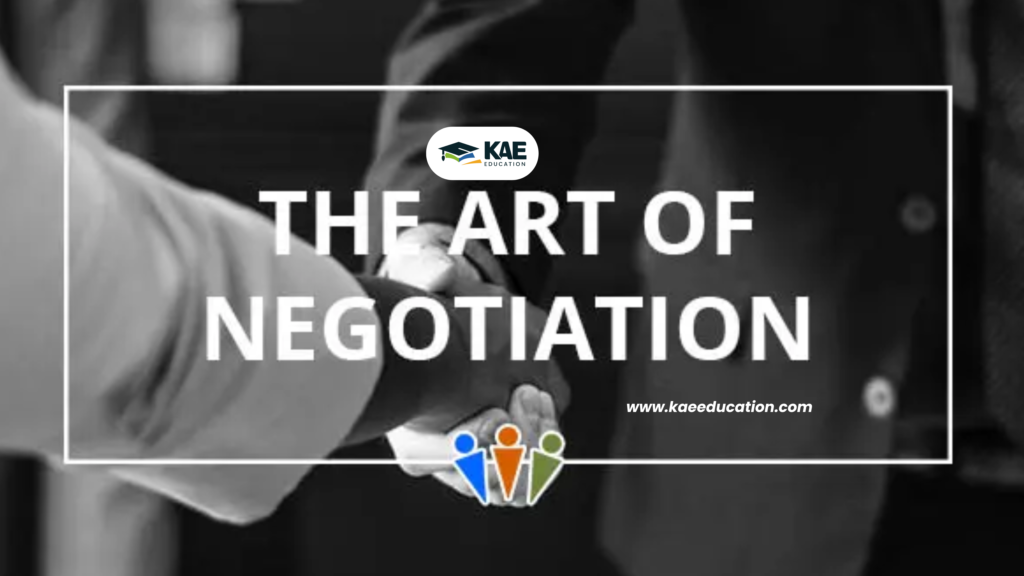What’s Next for Negotiation Skills in the Business World?
Success in the corporate world requires the ability to Negotiate. Whether you’re dealing with clients, colleagues, or stakeholders, the ability to Negotiate effectively can significantly impact the outcome of deals, partnerships, and relationships. As the Business world continues to evolve, so do the strategies and techniques used in Negotiations skills. So, what’s next for Negotiation skills in the Business world, and how can professionals stay ahead of the curve? In this blog, we’ll explore the future of Negotiation skills and how they will shape Business interactions in the coming years.
The Evolution of Negotiation in Business
Negotiation skills has always been about finding common ground and creating mutually beneficial outcomes. However, with technological advancements, cultural shifts, and the changing nature of the global economy, Negotiation skills must adapt to stay relevant. Here are some key trends that will shape the Future of Negotiation skills in Business:
(1) Technology and Automation As Businesses increasingly rely on digital tools and platforms, negotiation processes are becoming more tech-driven. AI and Machine Learning are playing an important role in Analyzing data, predicting market trends, and even guiding Negotiation strategies. Automation can help streamline the administrative aspects of Negotiations skills, such as contract management and documentation.
(i) AI-Powered Negotiation Tools:-
AI can assist in decision-making by offering insights into market trends, pricing, and competitor behaviors.
(ii) Virtual Platforms:-
Video conferencing tools and digital collaboration platforms will become the primary medium for Business Negotiations, especially with the rise of remote work.
(2) Cultural Sensitivity and Diversity In an increasingly globalized world, understanding cultural differences is crucial in Negotiation. Future Negotiators will need to hone their skills in cross-cultural communication and adapt their strategies to meet the diverse needs of International clients and partners.
(i) Adapting Communication Styles:-
Negotiators will need to adjust their communication techniques to suit different cultural norms, preferences, and Business practices.
(ii) Building Trust Across Cultures:-
Cultivating trust will require Negotiators to understand the values and motivations of their International counterparts.
(3) Emotional Intelligence (EQ) In addition to cognitive skills, Emotional Intelligence (EQ) will play a critical role in successful Negotiations. As Business transactions become more personal, understanding emotions and managing interpersonal dynamics will be essential. Future negotiators will need to develop empathy, active listening, and self-awareness to navigate complex Negotiation scenarios effectively.
(i) Empathy:-
Understanding the emotions and needs of others can help find creative solutions and ensure both parties feel heard.
(ii) Conflict Resolution:-
Managing emotions, especially during heated discussions, will be crucial for reaching a positive outcome.

(4) Data-Driven Negotiation skills With data becoming more accessible and valuable, Future Negotiators will rely on data-driven strategies to make informed decisions. By analyzing market conditions, customer insights, and competitor actions, Negotiators can create more compelling arguments and offer customized solutions.
(i) Big Data:-
Understanding consumer behavior and market trends through data analysis will give Negotiators a competitive edge.
(ii) Negotiation Analytics:-
Using data to evaluate past Negotiations skills and improve strategies for future ones will be critical for success.
(5) Sustainability and Ethical Negotiation skills As Businesses face increasing pressure to operate sustainably, Ethical Negotiation skills will become a focal point. Negotiators will need to consider the environmental and social impact of their decisions and find ways to align Business goals with sustainable practices.
(i) Ethical Frameworks:-
Negotiators will be expected to adhere to Ethical guidelines and create fair agreements that benefit both parties.
(ii) Sustainability in Deals:-
Future Negotiations skills may include discussions about reducing carbon footprints, promoting Corporate Social Responsibility (CSR), and supporting sustainable initiatives.
Conclusion
The Future of Negotiation in Business is full of exciting possibilities. As technology, globalization, and cultural shifts continue to reshape the landscape, effective Negotiators will need to adapt by honing new skills, such as emotional Intelligence, cultural sensitivity, and Data analysis. By staying ahead of these trends, professionals can become more effective Negotiators and secure favorable outcomes in the evolving Business world. Whether you’re negotiating face-to-face or in a virtual setting, mastering these emerging skills will be essential for success in the Future of Negotiation.
Frequently Asked Questions (FAQs)
Technology, including AI and automation, will help Negotiators analyze data, predict trends, and streamline processes, making negotiations more efficient and effective.
Cultural sensitivity helps build trust and ensure that communication is effective across diverse teams, especially when Negotiating internationally.
Emotional intelligence enables Negotiators to manage emotions, build rapport, and understand the needs and concerns of the other party, leading to more successful outcomes.
Data-driven Negotiation involves using data and analytics to guide decision-making, understand market trends, and tailor Negotiation strategies to create better outcomes.
Future Negotiators should focus on developing emotional intelligence, improving their cross-cultural communication skills, and leveraging technology and data to enhance their Negotiation strategies.
Ethical Negotiation will require Negotiators to prioritize fairness, transparency, and sustainability, ensuring that deals benefit both parties while considering their social and environmental impact.
As more Negotiations take place online, Negotiators will need to master digital platforms and enhance their ability to build relationships and communicate effectively in virtual settings.

